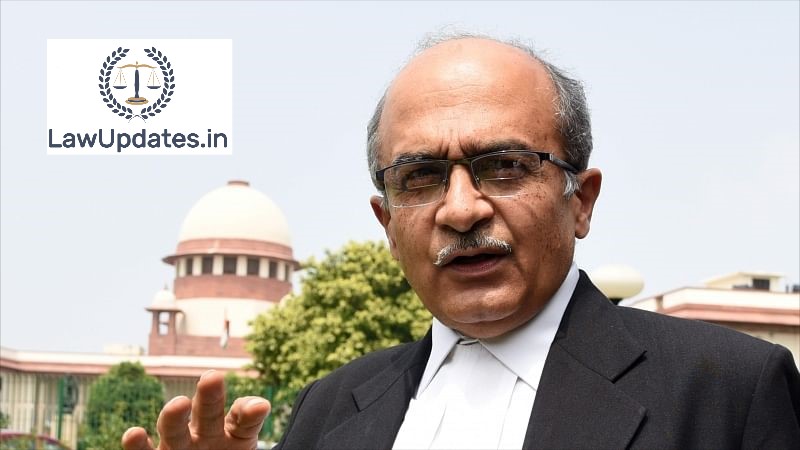AFTER THE Supreme Court initiated contempt proceedings and issued notice to him over two of his tweets, advocate Prashant Bhushan has responded in an affidavit that “such expression of opinion however outspoken, disagreeable or however unpalatable…cannot constitute contempt of court”. The court will hear the matter on August 5.
A bench headed by Justice Arun Mishra had on July 22 issued notice to Bhushan and Twitter Inc regarding the tweets dated June 27 and June 29, stating that they “brought the administration of justice in disrepute”.
Read Also: P&H HC dismisses Bail plea of Man accused of distilling illicit Liquor at Home
Replying to the notice, Bhushan told the court in the affidavit dated August 2 that the June 29 tweet on photos of Chief Justice of India S A Bobde seated on a bike “was made primarily to underline my anguish at the non-physical functioning of the Supreme Court for the last more than three months, as a result of which fundamental rights of citizens, such as those in detention, those destitute and poor, and others facing serious and urgent grievances were not being addressed or taken up for redressal”.
The June 27 tweet, he contended, was “my bonafide opinion about the state of affairs in the country in the past six years and the role of the Supreme Court…”
“It is the essence of a democracy that all institutions, including the judiciary, function for the citizens and the people of this country, and they have every right to freely and fairly discuss the state of affairs of an institution and build public opinion in order to reform the institution. I submit that my criticism has been outspoken yet it has been carefully weighed and made with the highest sense of responsibility. What I have tweeted is thus my bonafide impression about the manner and functioning of the Supreme Court…,” Bhushan wrote.
The affidavit also noted speeches made by Justice D Y Chandrachud and former Supreme Court Judge Justice Deepak Gupta on dissent in a democracy.
Referring to the press conference by four senior Supreme Court judges on January 12, 2018, Bhushan said that “so serious were the misgivings of the senior sitting judges that they felt compelled to disregard the Code of Judicial Conduct to call a press conference and warn citizens of danger to democracy because of danger to a free judiciary”.
Bhushan contended that “freedom of speech and expression guaranteed to every citizen under Article 19(1)(a) is the ultimate guardian of all the values that the Constitution holds sacred…”
He wrote: “Article l9(2) recognises the fetters that can be placed on freedom of speech & expression under the Court’s power to punish for contempt under Article 129. ‘Reasonable restriction’ being the operative word under Article l9(2), any exercise of contempt powers by the Supreme Court, must necessarily not be of a nature that goes beyond ‘reasonable restrictions’.”
Read Also: Pak court appoints 3 senior lawyers as amicus curiae in Jadhav case
Bhushan further wrote: “…to prevent a citizen from forming, holding, & expressing a ‘bonafide opinion’ in Public Interest on any institution that is a creature of the Constitution is not a reasonable restriction…To curb constructive criticism from persons of knowledge and standing is not a ‘reasonable restriction’. Preventing citizens from demanding accountability and reforms and advocating for the same by generating public opinion is not a ‘reasonable restriction’.”
The affidavit stated: “The power of contempt under Article 129 is to be utilised to aid in administration of justice and… cannot be pressed into service to stifle bonafide criticism from citizens who are well informed about the omissions and commissions of the Supreme Court.”


![P&H HC prohibits use of saliva to affix court fees on Court documents[Read Order] 2](https://lawupdates.in/wp-content/uploads/2020/07/Punjab-and-Haryana-HC.jpg)

